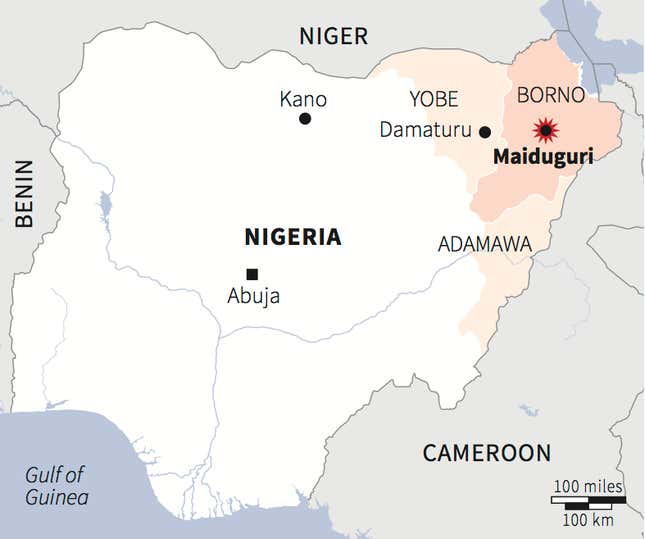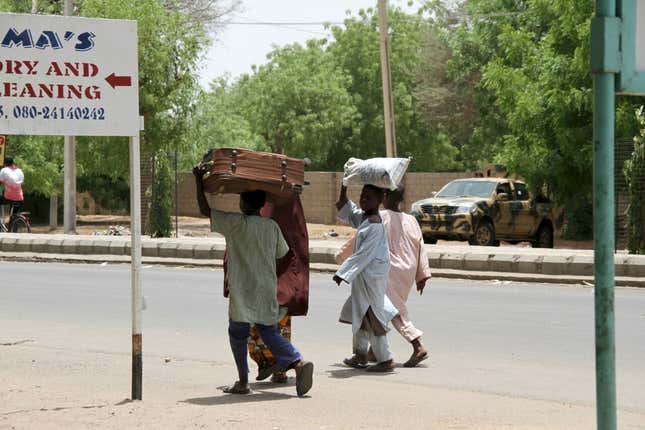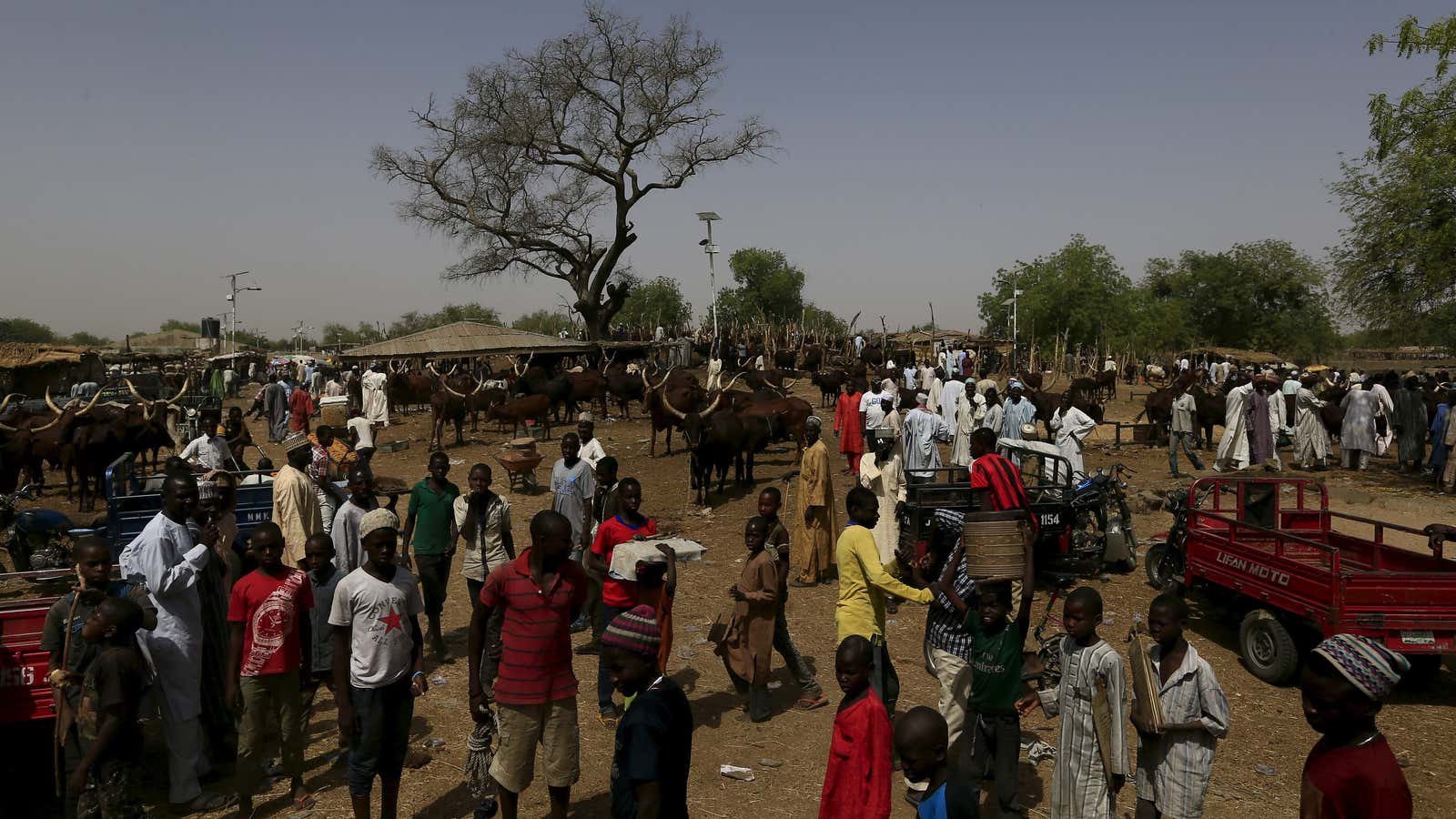Since the insurgency in the Nigeria’s North-East waged by terrorist sect Boko Haram began in 2009, it has changed the lives of some nine million people across the states of Borno, Yobe and Adamawa. The local economies collapsed as businesses and companies left. Incomes fell and schools closed as people fled the region and property values in the area suffered steep falls.
However, there has been a reversal of fortunes in the region as the terrorist group has been gradually beaten back and territory formerly under its control retaken by the Nigerian army. In the past few months, there has been relative calm and it has brought with it a gradual restoration of economic activity.
This economic rebound is most evident in how property prices have recovered, and even surpassed pre-insurgency levels, particularly in the three major cities in the region: Maiduguri, the northeast’s biggest city—home to some two million people in Borno State; Potiskum, the commercial capital of Yobe State and Mubi, a town on the Cameroonian border that is the commercial hub of Adamawa State.

There have been reports that Maiduguri property owners have been able to make up to 500% profit on their properties and there is an increasing demand for land for residential homes construction. The rebound in Maiduguri is particularly notable because it had been Boko Haram’s stronghold for several years before the Army’s operations pushed the majority into the nearby Sambisa Forest.
Abubakar Gambo, a resident of Maiduguri told Quartz he’s seen plenty of anecdotal evidence that the area is making a comeback after a horrific few years under insurgent threat.
“I know of a man who sold a land in Potiskum the size of ten plots for 40 million naira ($200,000); this land would not have gone for more than 15 million naira in 2010,” he said.
He also mentioned that many of the property owners striking gold now were those who bought homes or land on the cheap from fleeing families and are now flipping them over for over 200% profit returns.
The burgeoning real estate market in the region is mostly transacted informally—hardly any real estate agents are used, with the buyer and seller coming to an agreement directly in the presence of witnesses.
Gambo, for example, spoke of being a witness to a land transaction valued at 3 million naira ($15,075) in Maiduguri and another in Potiskum worth 5 million naira ($25,152).
However, the few existing real estate agents are not left out in the action, such as Bala Geidam, who runs Dolphin, a real estate agency in Maiduguri.
“A lot of property was sold off by the owners who were fleeing the insurgency at giveaway prices; these properties now go for a minimum of 100% more—for example, a property that was sold for 4.5 million naira ($22,613) in 2012 is now going for 15 million naira ($75,376),” he said.
He attributed the increase in prices to people returning to the city with the newfound peace, people moving from parts of the town that were ravaged by the insurgency to relatively safe places and also the influx of international NGOs into the city.
It is the same story in Mubi, according to Joseph Ishaku, who follows the property market in the city closely, property prices crashed during the insurgency as the city emptied out, but are now returning to their pre-insurgency prices.
“An average three-bedroom flat in town went for about 7 million naira; but as people sold and left the town in droves, the price crashed to about 2 million naira. The prices have now recovered to the previous level now,” he said.
He also noted that the population in the city now has even increased to even more than pre-insurgency levels as many from neighboring villages and towns have resettled in Mubi, thus increasing demand for housing and driving prices upwards.

While it is obvious the North-East has started on its road to recovery, it is still a very long away from reaching the destination: there are still hundreds of thousands of people that are in camps for internally displaced persons (IDP) in either Maiduguri itself, Abuja or even as far as Edo State in the south of the country. This is not counting the thousands that are displaced and staying with relatives all over the country or forced to take up odd jobs in other cities. These IDPs are mostly from the rural areas in Borno, Yobe and Adamawa which while are not under the control of Boko Haram , are at the risk of being attacked due to their remoteness and the inability of those vast spaces to be adequately policed.
There is also the need for a lot of investment in restoring and building the infrastructure in the region, developing human capital and restoring the economy of the region in order to improve the socio-economic conditions.
This fact is not lost on either the government which has made reconstruction of the North-East a priority (a bill to establish the North East Development Commission which will be a federal agency to coordinate spending in development in the region, has reached advanced stages in both houses of the Parliament) nor international donor agencies and countries which have so far in total pledged $2.1 billion for the region.
But for now, the people of the North-East are starting to return to life as they used to know it.
